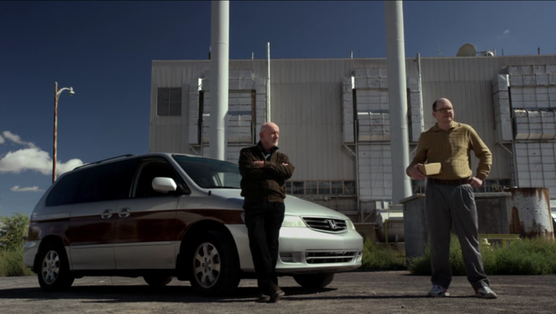by: Art Rosch
As season two of HBO’s computer-geek parody reaches its conclusion, we take a look at what makes Silicon Valley one of the best comedies on television…
“It’s intoxicating. Don’t act like it’s not magical. It is” – Jared Dunn
Computer geeks are an easy target. They walk inside a field of self-generated clichés. Socially awkward, virginal, they gather like enigmatic packs of bipedal Chihuahuas who speak an arcane scientific language. Since few people understand them, they are forced to seek companionship with their own kind. No matter the fact that they loathe one another, they’re all they’ve got.
HBO’s Silicon Valley does little to debunk the myths about coders, hackers, and programmers as reinforce them. We see them as we expect to see them: neurotic, jittery, terrified of the opposite sex, and lost in video games or bongs when they’re not working. We wouldn’t be laughing if the clichés were without substance, and throughout the initial two seasons of Mike Judge’s computer-centric series, we have been doing plenty of just that, cackling like hyenas.
The geeks’ Holy Grail, their leprechaun’s pot of gold, is to invent the Killer App that brings them riches, or to create an algorithm that will change the world of computing. The top tier of their hierarchy is occupied by the tech billionaires. Steve Jobs and Bill Gates may cast long shadows, but the tech world is about swift change, a change so headlong that a startup company can swing from the euphoria of being funded to the disaster of being scooped, of having their intellectual property stolen, hacked, pilfered, betrayed or hamstrung by lawsuit until the funding vanishes as swiftly as it appeared. In the last sentence, I have revealed the basic plot structure of a typical episode of Silicon Valley.
The billionaires who have run the gauntlet of these dangers would seem to be settled into their wealth. Such is not the case here. They are under intense pressure to stay ahead of the curve, to continue to innovate. They’ve gone beyond common neurosis into a rarified air of psychosis that is buffered by obscene wealth. They have enough money to indulge their every eccentricity. They are occupied with such projects as inventing driverless automobiles that look like women’s high heeled shoes, augmenting limbless monkeys with mechanical arms (what they choose to do with said mechanical arms is a whole other matter!), and, of course, potato guns.
Silicon Valley is a meditation on the business of Tech, the culture of Tech and the people who operate within this microcosm. The central character, Richard Hendrix, played by Thomas Middleditch, is an authentic computer genius without a shred of common sense. He has created a blockbuster of an app, a compression algorithm so good it allows data to be up-and-downloaded at blinding speed. So far, we have watched with amusement as this technology has been stolen, time and time again, by less scrupulous competitors or flat-out given away by our witless hero who doesn’t realize that he is traversing a minefield of ruthless competition.
Silicon Valley is a bit of a cartoon, but how could it not be? Mike Judge is a cartoon maker, having spawned Beavis and Butthead and King Of The Hill. Mike Judge and his co-producers have thrown Silicon Valley’s cast into a fictional Palo Alto, California house that is owned by a tubby, grandiose character named Erlich Bachman (T.J. Miller). Bachman calls this place his “incubator.” He offers shelter to geeks in exchange for stock shares in their future apps and innovations, although it hasn’t entirely worked out as planned as “functionally, all [he has] really achieved is running a flophouse where guys have shat, jerked off, and paid [him] no rent.” Obnoxious as he is, Erlich functions as an ego in a show where there is a debilitating shortage of self-confidence. The cast of characters who live in the house barely combine to form a single functioning person yet in spite of, or because of, this paucity of social and business acumen, the team manages to reinforce one another. Since most of the responsibilities are on Richard’s shoulders, it is Richard who must reach deep within himself and locate enough courage to face down the most intimidating of tech moguls as he clamors to make his company and himself, stronger.
It is hard not to root for Richard, and herein lies the fun, and the frustration. I find myself angry with him for being so witless as to repeatedly give away his property. I put my hands up to my head and moan “Shut up, Richard. Just shut up! Don’t you know you’re getting brain-raped?” This knee-jerk reaction points to an emotional investment harvested capably by Mike Judge and his cohorts, who have set me up not only to laugh with, but also to fight for these crew of hapless underdogs.
Season Two’s adrenalized finale, “Two Days of the Condor,” brought long-awaited resolution to the legal battle with Hooli (with the help of Matt McCoy’s hilarious non-lawyer, Pete Monaghan), but happy endings aren’t so easily conceded on Silicon Valley. And it was Richard himself who stood poised to take the fall as the curtain closed, but this is where Silicon Valley excels as this caricature-fraught comedy is also rife with heart. Richard Hendrix would be compelling simply because of his authentic genius, but he is much more than just that. He is the archetypal Virtuous Man. He is kind, empathic, honest, generous and lacking in guile. These qualities may not mesh with the requirements of a business tycoon but they make for an endearing character. And as Season Two came to its close, those of us who root wholeheartedly for Richard were toyed with, and following an enthralling race against time, felt the gut-punch of a cliffhanger that was both dark and gripping, and has a growing fan-base eager for what may lie ahead.





